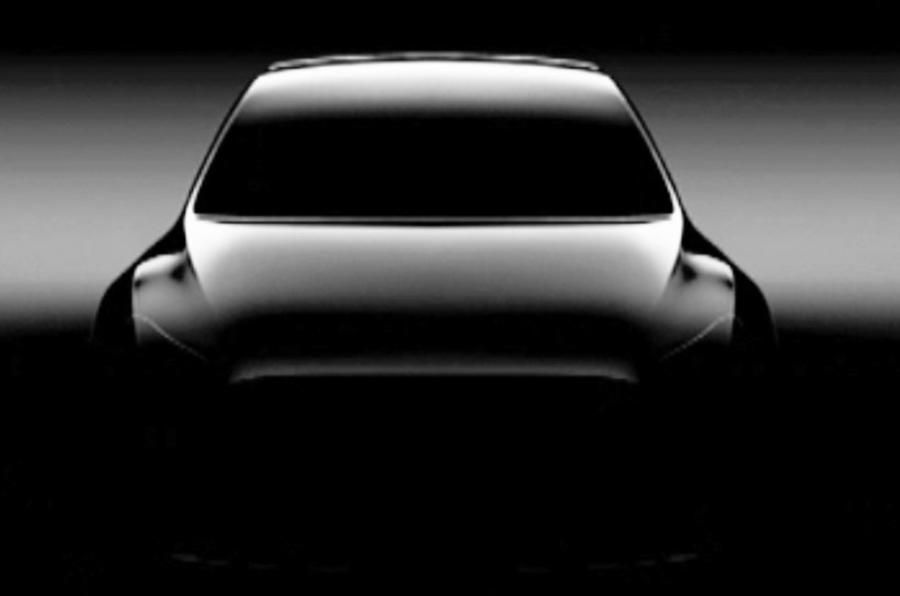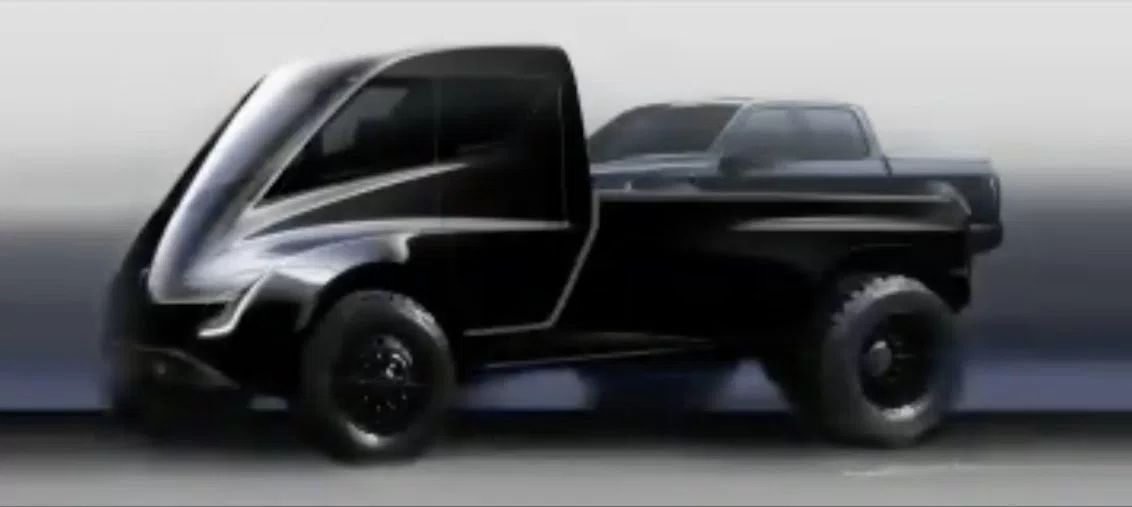By Gary Elinoff, contributing writer
America is in love with trucks, and so, too, is Tesla’s Elon Musk. Fresh after introducing his game-changing electric semi , the entrepreneur has promised — on his Twitter feed, no less — that he also has a pickup truck in his sights. To wit:

The Model Y
The Model Y, to those unfamiliar, is to be an electric crossover vehicle that will be similar to the Tesla Model 3. According to a report in Reuters , production of the Model Y is slated to begin in mid-2019, and in order to get the vehicle to market more quickly, Musk revealed that the “Model Y will, in fact, be using substantial carry-over from Model 3.”
By all accounts, the Model Y will be, in a word, beautiful. The official teaser from Tesla, previewed at a shareholder’s meeting, reveals few details.

Tesla Model Y, preliminary concept. Image source: autocar.co.uk.
However, we know that the ultra-sleek design will deploy no door mirrors to mar its striking appearance.
The pickup truck
The yet unborn pickup, according to another Musk tweet, will be, when compared to the popular Ford F150, “Similar total size. Maybe slightly bigger to account for a really game-changing feature I’d like to add.” No hint as to what those size-based “game-changing features” are to be, as yet. However, some preliminary sketches were revealed in an article in electrek.co.

Preliminary sketches of Tesla’s pickup truck. Image source: electrek.co.
It certainly has the size. Musk said, “It’s a pickup truck that can carry a pickup truck.” And, much as the Model Y utilizes much in the Model 3, the new pickup, at least at this stage of the game, seems to descend directly from the electric semi.
Electric vehicles: classic “chicken-and-egg” dilemma
Americans will expect to able to pick up and go in their electric vehicles at any time, with little or no planning, just as they do now in their gasoline-powered cars, trucks, and SUVs. Few consumers will want to rely on such vehicles before electric charging stations are as widespread as the huge network of gasoline stations are today. This will require an investment, by someone, of several hundreds of billions of dollars. But, of course, no one will spend that type of money for vehicles that don’t, as yet, exist en masse.
But this won’t be quite the problem for the electric semi, which is likely to be deployed by well-organized corporations that methodically plan when and where their big rigs will be at any given time. These users can always ensure that their electric semis will always be near a possibly private charging station when a “fill-up” is needed.
That’s why you’ll probably see the interstates sporting huge fleets of all-electric semis long before their smaller cousins truly begin to bloom.
Advertisement
Learn more about Electronic Products Magazine





